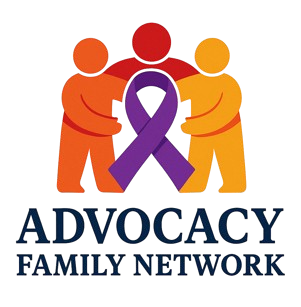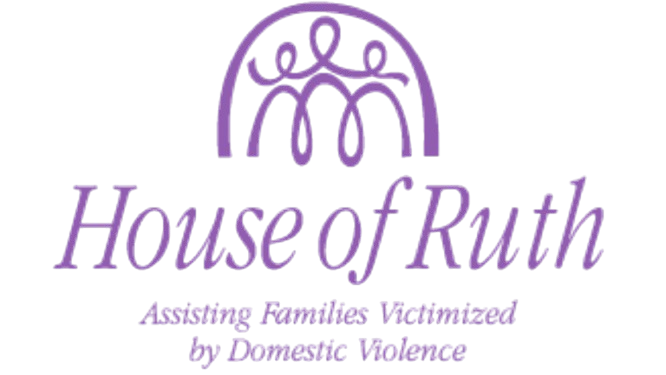Recently updated on November 21st, 2025 at 06:22 am
This website helps prepare the forms required for Protection From Abuse in Alabama.
We do have juvenile and Elder Abuse protection orders. here
HOW IT WORKS

1. Take Screening
Start with an online screening tool to help determine whether a Protection from Abuse (PFA) order in Alabama is appropriate for your situation.

2. Prepare Documents
Instead of looking at the legal forms themselves, you will be guided through a series of detailed questions. These will gather the necessary information topic by topic. The questions are in plain language, and easy to understand for non-lawyers. To make this process as simple as possible, our system will then generate the official court forms with your responses printed on them.

3. Consult Advocate (Optional)
You can consult a victim advocate or pro bono (free) lawyer to get guidance. These resources are typically paid by government and are free to you. An advocate or lawyer can help you review your case documents, and talk to you directly to discuss your case and safety planning. Only lawyers may give legal advice but most advocates have experience with protection orders and can support and guide you through this process.

4. File with the Clerk
You can formally begin the case by filing the PFA request documents in certain Alabama Circuit Court clerk’s offices. A victim who files this case becomes the “Plaintiff”. A victim may file a petition for a protection order may be filed in any of the following locations
(1) Where the plaintiff or defendant resides.(2) Where the plaintiff is temporarily located if he or she has left his or her residence to avoid further abuse.
(3) Where the abuse occurred.
(4) Where a civil matter is pending before the court in which the plaintiff and the defendant are opposing parties. Ala. Code § 30-5-3
You will be informed about which specific court you need to file at as its important to go to one that has jurisdiction over your case. You can file by either printing and visiting the clerk's office at the court or in many locations online directly from this website.
Process
Step 1
You: Gather Evidence. What do you need to request a Protection from Abuse (PFA) order in Alabama?
Gathering evidence strengthens your case when filing for a Protection from Abuse (PFA) order in Alabama. While your personal sworn statement may be enough to obtain protection, submitting additional supporting evidence can significantly improve your chances of success.
The following are accepted types of evidence under Alabama law:
Evidence Type 1: Pending Criminal Case
If there is an ongoing criminal case against the respondent (the abuser), this can support your petition. Judges in Alabama are more likely to grant a PFA if law enforcement or a prosecutor is already involved.
Evidence Type 2: Photos of Injuries, Property Damage, or Violence
Photos of bruises, cuts, broken property, or any physical signs of abuse can be powerful in court. In Alabama, attaching brief descriptions of what each image shows and when it was taken can help the judge understand the severity of the situation.
Evidence Type 3: Printouts of Text Messages, Emails, or Voicemails
You can print out or take screenshots of threatening or harassing messages and submit them with your petition. In Alabama courts, these are typically submitted as printed documents or attached electronically if e-filing is allowed.
Evidence Type 4: 911 Calls
If you called 911, include:
The date and time of the call
Who made the call
What was said or reported
Any dispatcher details (e.g., male/female voice)
The case number or incident report related to the call
You can request a record of the call or report from the local law enforcement agency.
Evidence Type 5: Medical Records
Provide documentation of injuries or health visits related to the abuse. Alabama courts accept:
ER discharge papers
Hospital visit records
Patient portal summaries (e.g., MyChart printouts)
Doctor’s notes related to injuries or trauma
Evidence Type 6: Police Reports
If law enforcement was involved, include a copy of any incident or arrest reports. You can obtain these from your local sheriff’s office or police department.
Evidence Type 7: Testimony
Written statements from family members, neighbors, or anyone who witnessed the abuse can support your case. Alabama does not require notarized affidavits, but the statements should be detailed and include names, dates, and specific incidents witnessed.
Step 2
You: Take Online Screening
 Determine if your situation may qualify for a Protection from Abuse (PFA) order in Alabama by taking a quick screening. You can begin by entering your ZIP code in the top right corner to find local resources and court information.
Determine if your situation may qualify for a Protection from Abuse (PFA) order in Alabama by taking a quick screening. You can begin by entering your ZIP code in the top right corner to find local resources and court information.
Step 3
You: Create Case Documents - "Packet"
After the screening, this website will guide you through the remaining steps to create your case documents.
Just so you know: To apply for a Protection from Abuse (PFA) order in Alabama, you must complete and submit a set of official court forms. These forms ask for information about your situation, your relationship with the respondent, and the incidents of abuse.
The most important form is the Petition for Protection from Abuse, which is the main document used to request a PFA order from the court.
Step 4
You: File with the Court. How to file a Protection from Abuse (PFA) order in Alabama
Step 5
Judge Issues a Temporary Injunction
Step 6
Law Enforcement: Delivers Temporary Protection Order to the Abuser
Once the judge issues a Temporary Protection from Abuse (PFA) Order, the court will arrange for law enforcement to serve the order to the respondent (the abuser).
In Alabama, the order is typically delivered by the sheriff’s office in the county where the respondent lives or works.
The respondent must be officially notified and given a copy of the order before the protections can be enforced. This step is required before the final hearing can take place.
You do not need to serve the respondent yourself. The court and law enforcement handle that process to help keep you safe.
Step 7
You, Respondent: Attend Court Hearing
After the Temporary Protection from Abuse (PFA) Order is issued and served, the court will schedule a final hearing, usually within 10 days.
Both you (the petitioner) and the respondent (the person accused of abuse) have the right to attend this hearing and present evidence, testimony, and witnesses.
During the hearing, the judge will review:
The original petition and any supporting evidence
Testimony from both parties
Any updates or incidents that occurred since the temporary order
If the judge finds sufficient evidence that abuse occurred or is likely to occur again, they may issue a Final Protection from Abuse Order. This final order can last for up to one year, or longer if the court finds good cause.
Step 8
You: Collect the Final Injunction Order
If the judge issues a Final Protection from Abuse (PFA) Order after the hearing, you will receive an official, signed copy of the order.
Be sure to get a paper copy before you leave the courthouse. This document outlines the protections granted and is important to keep with you at all times in case you need to show it to law enforcement.
FAQs
RESOURCES

Advocacy Family Network, Inc.
They connect victims and families with essential services such as shelter, legal help, safety planning, counseling, and support for domestic violence survivors, foreign-born individuals, children, mental health aid, victims’ compensation, and resources for deaf or hearing-impaired clients. They also serve Redstone Arsenal.
PO Box 165, Harvest, AL 35749

Helping Hearts Alabama
Helping Hearts Alabama is a nonprofit supporting domestic violence survivors through advocacy, education, and direct services. From court support to crisis intervention, we help individuals find safety, resources, and hope ensuring no one faces abuse alone. Healing starts with being heard, and we're here to listen and stand by each survivor.
PO BOX 1512 Huntsville, AL 35807

The House of Ruth, Inc.
The House of Ruth, Inc. serves domestic violence victims and survivors in Barbour, Bullock, Coffee, Covington, Dale, Geneva, Henry, Houston, and Pike County. We serve victims and survivors of sexual assault in Coffee, Dale, Geneva, Henry, Houston and Pike County.
The counties that I serve for domestic violence are Coffee, Covington, Dale, Geneva, And Pike County. I can easily put you in touch with the advocate for our other 4 counties or our sexual assault advocate if need ed.
214 West Troy Street, Dothan AL 36303

Latino Hope & Advocacy LLC
Latino Hope & Advocacy LLC, founded by Veronica Hope Carney in North Alabama, offers bilingual notary, translation, interpretation, and advocacy services tailored to the Latino community. Partnering with groups like Crisis Services of North Alabama, they provide personalized support to help clients access vital legal and social services locally.
56 Hughes Road, #P.O Box 1472, Madison AL 35758

Dominique Dudley
Dominique Dudley is an advocate dedicated to supporting individuals facing domestic violence. She assists with navigating legal protection processes, offers compassionate guidance, and connects clients with essential resources ensuring they feel supported, informed, and empowered every step of the way.
208 Exchange Place Northwest, Huntsville AL 35806

Advocate Assistant
An Advocate Assistant at the National Children’s Advocacy Center in Huntsville, Alabama, provides vital support to children and families affected by abuse. Working alongside forensic interviewers, counselors, and caseworkers, the assistant helps coordinate services, offers emotional support, and ensures each family receives the resources they need for healing and justice.
2008 Giles Drive Northeast, Huntsville AL 35811

Latanya Davis
LaTanya S. Davis is the Founder and Executive Director of SEVEDA (Supporting Each Victim Encountering Domestic Abuse) in Decatur, Alabama. A survivor herself, she launched SEVEDA in 2023 to provide nonjudgmental support offering shelter, counseling, education, and resources to both survivors and abusers, turning her experience into a mission of empowerment and healing.
1629 4th Avenue Southeast, #100, Decatur AL 35601

Breanna Burgess
Breanna A. Burgess is a Domestic Abuse Victim Advocate with Army Community Service. Based in Huntsville (North Alabama), she leads interactive Personal Safety Skills classes through the Family Advocacy Program. Breanna teaches trauma-informed techniques such as weight-based escapes for individuals to safely exit violent confrontations, emphasizing that victims don’t need to be physically strong to protect themselves
3443 Aerobee Road, Huntsville AL 35805

National Children's Advocacy Center
Jana Thomas is the Family Advocate Supervisor at the National Children’s Advocacy Center (NCAC) in Huntsville, Alabama. With a background in social work, she has experience in pediatric psychiatric care, alternative education, juvenile probation in Nashville, and child welfare with Lauderdale County DHR.
210 Pratt Avenue Northeast, #Building D, Huntsville AL 35801

Amy Nix
Amy Nix is an advocate with the National Children’s Advocacy Center, supporting children and families impacted by abuse. She assists clients through legal interviews, crisis intervention, and connects them with essential community resources—offering compassionate guidance and ensuring no one navigates the recovery process alone.
210 Pratt Avenue Pratt Avenue , Huntsville, Alabama AL 35801
Court Forms Created This website guides you through all the necessary steps to complete your Protection from Abuse (PFA) documents and file your case with the court.
Core Forms
- Petition for Protection from Abuse
- Request for Hearing Protection from Abuse Act
- Protection from Abuse Plaintiff
- Exhibit A
- Exhibit B
Proposed Orders
- Protection Order
-
Ex Parte Protection Order
